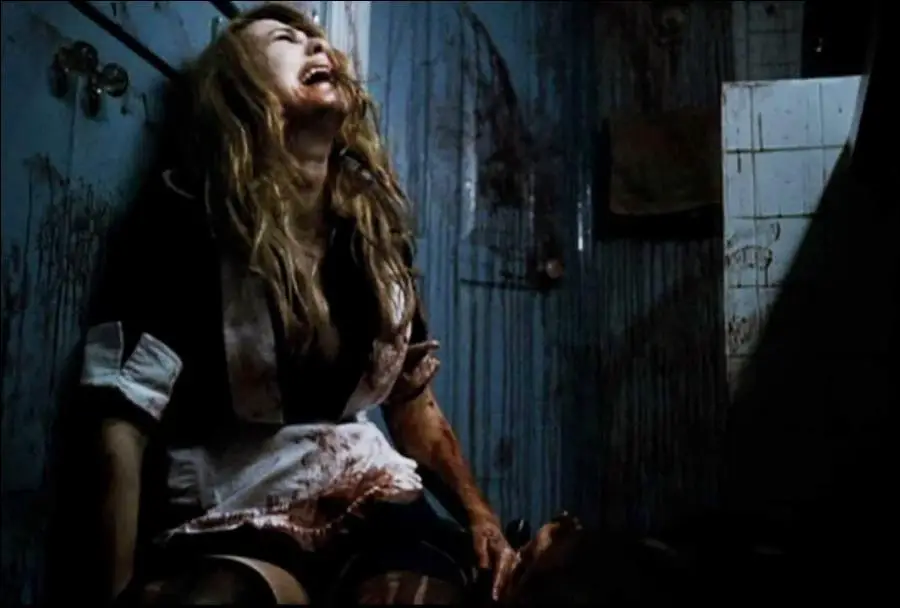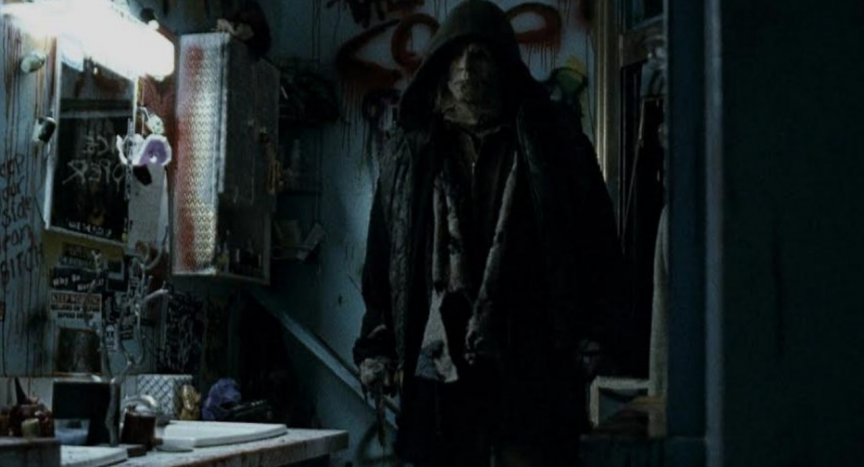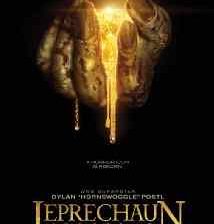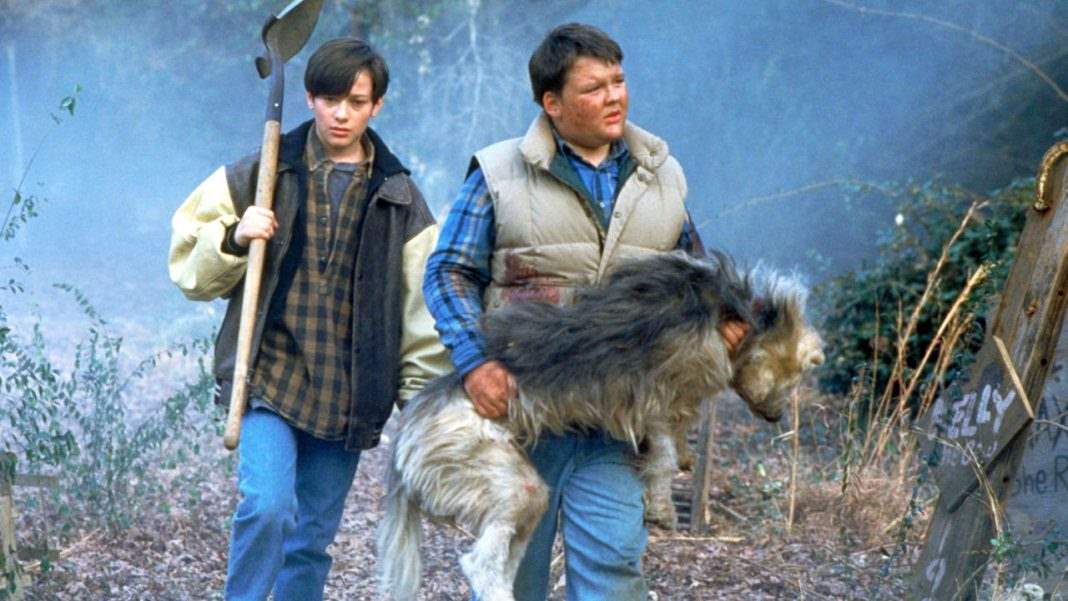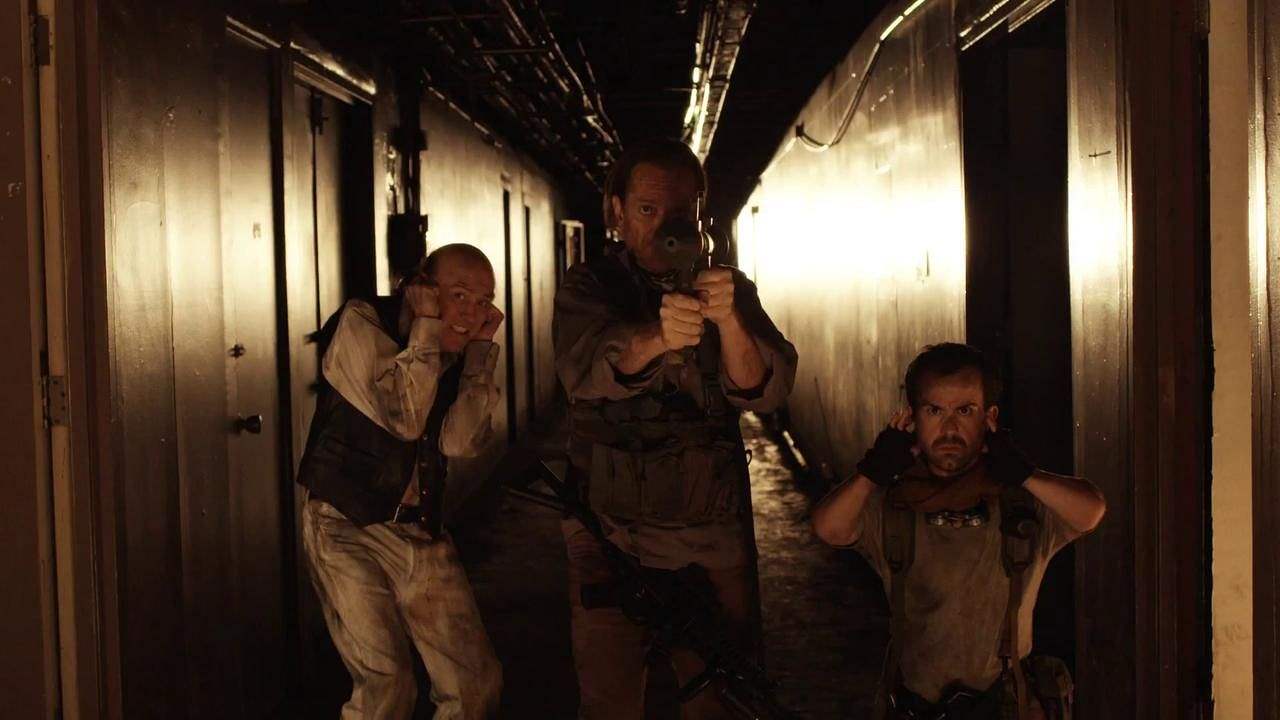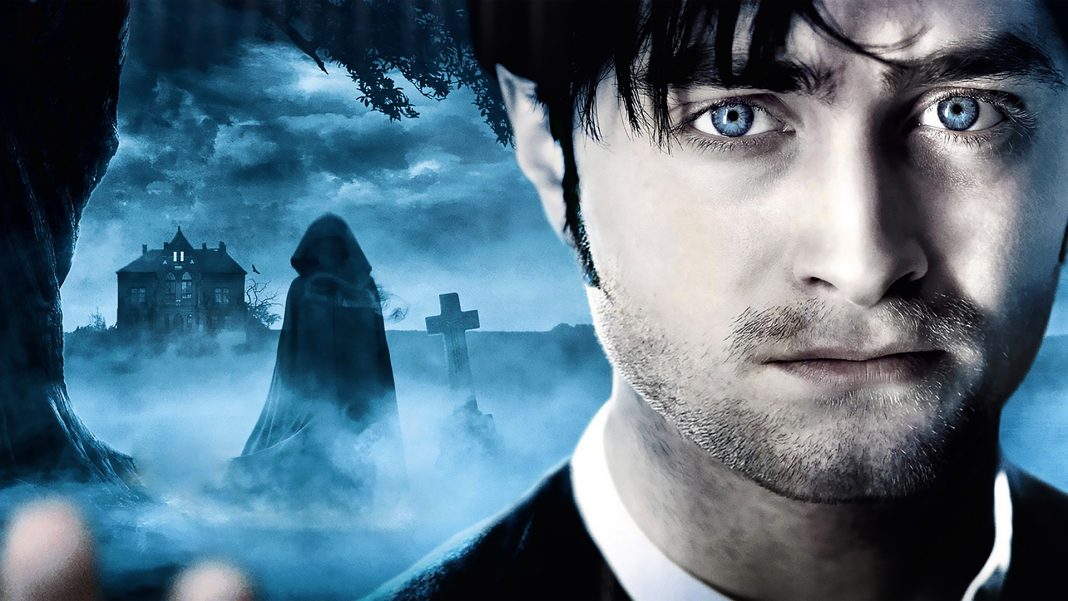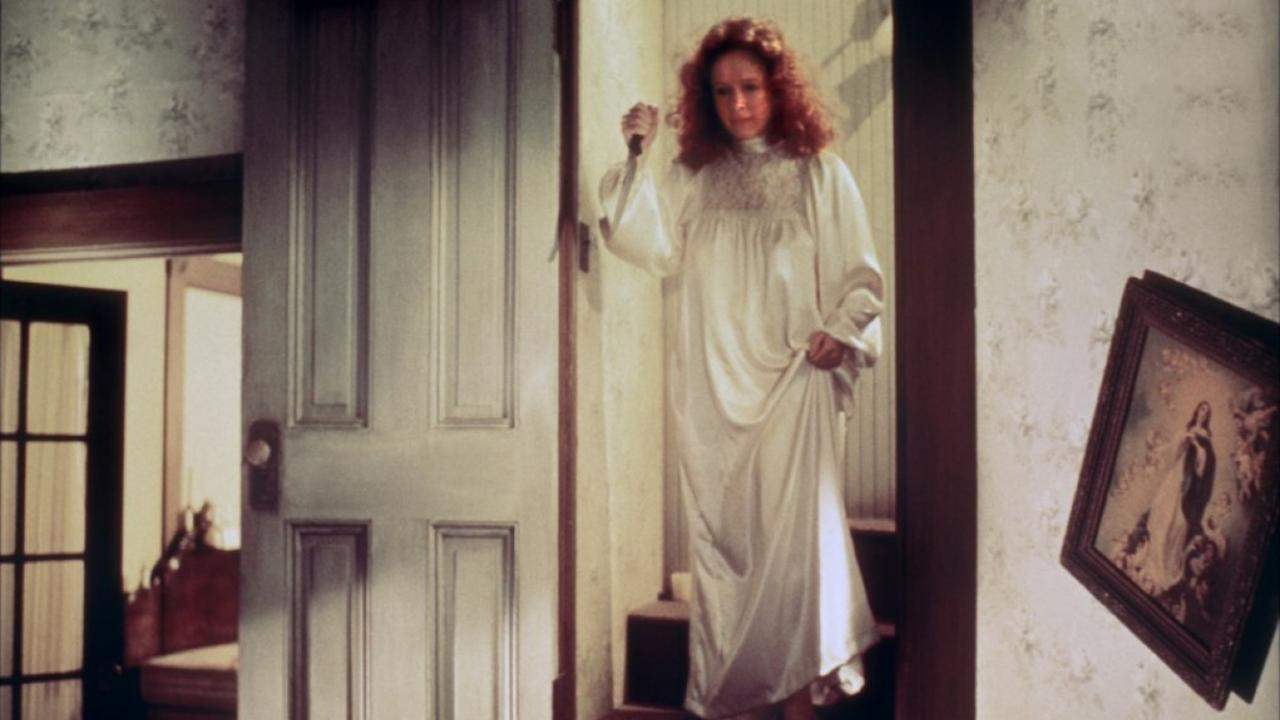I always have a problem trying to understand the automatic resistance so often accompanying a remake. Let alone a follow-up to a remake such as Rob Zombie’s Halloween II (which is celebrating the ten year anniversary of its theatrical release this month). As a fan, I understand the desire to protect a film that you love. One of the best feelings is adding a truly remarkable title to our personal collection. The good news, however, is that with re-releases and home media, the film is unlikely to disappear. Nor does the love of a great film just disappear. Unless, what really scares you is the possibility that new generations might come to remember the remake before the original.
But remakes have been around as long as the art of making films. They might be given new titles, fresh special-effects, or a new spin, but the remake has almost always been in existence. People still vividly remember 1933’s King Kong as they do Peter Jackson’s 2005 vision. In various interviews, Tilda Swinton has made a point that 2018’s Suspiria is a “cover version” of Dario Argento’s 1977 film. As is done continuously in the theatre, the Suspiria cover version is only a new production of what they consider horror’s Hamlet.
Check out this info about the director’s surprise cameo in Three From Hell!
And 2007’s Halloween is Rob Zombie’s production of John Carpenter’s seminal masterpiece. Unlike Gus Van Sant’s 1999 shot-by-shot recreation of Alfred Hitchcock’s Psycho, Zombie did something wildly different. Van Sant was criticized for being too similar while Zombie was maligned for straying too far off course. Well, if you are the Goldilocks of horror fans and are looking for one that is “just right” then you already have it. Rejoice! John Carpenter’s Halloween is a magnificent, brilliant, terrifying film that is available on Beta, VHS, LaserDisc, DVD, Blu-ray, and 4K!
While I enjoyed 2007’s Halloween. I did not care for the “white trash” aspect. Also, I was fortunate enough to see the theatrical cut before the unrated version. The unrated version has a mental hospital rape sequence that had I watched first I probably wouldn’t be writing this article. Rape needs to be examined in our culture but not as a shock-value plot device to help Michael Myers escape from imprisonment. So, I am basing my positive assessment of Zombie’s update and its subsequent sequel on the 2007 theatrical release.
Of the new elements from Zombie’s update, Sheri Moon Zombie’s portrayal of Deborah Myers is one of the more interesting. There is an untrained quality in her performance that is fresh and believable. As a woman doing the best she can (and failing), she ends the first act completely lost in her own lonely hell. The second half of the film leads the viewer into “totally charted territory” until the inevitable violent stand-off between Laurie (Scout Taylor-Compton) and Michael. And this is where Rob Zombie’s Halloween II picks up. One notable change is that Danielle Harris’s Annie Brackett survives her initial encounter with Michael Myers.
In defending Zombie’s Halloween II, one can argue that he attempts to do something original. Through a younger incarnation (Chase Wright Vanek) and bringing back the ghost of Deborah Myers, Zombie found an innovative way to allow Michael a way of communicating without actually speaking. This is obviously where many fans became further divided. As an audience, we are getting away from the simplistic style of the original Halloween and are, instead, exposed to a complex, cerebral feature. Which is exactly what I find interesting about Zombie’s direction. The original films exist and will always contain the mystery of Michael Myers. In a franchise, at some point, mystery has to give way to explanations. If not, the audience is only being delivered the same ideas again and again.
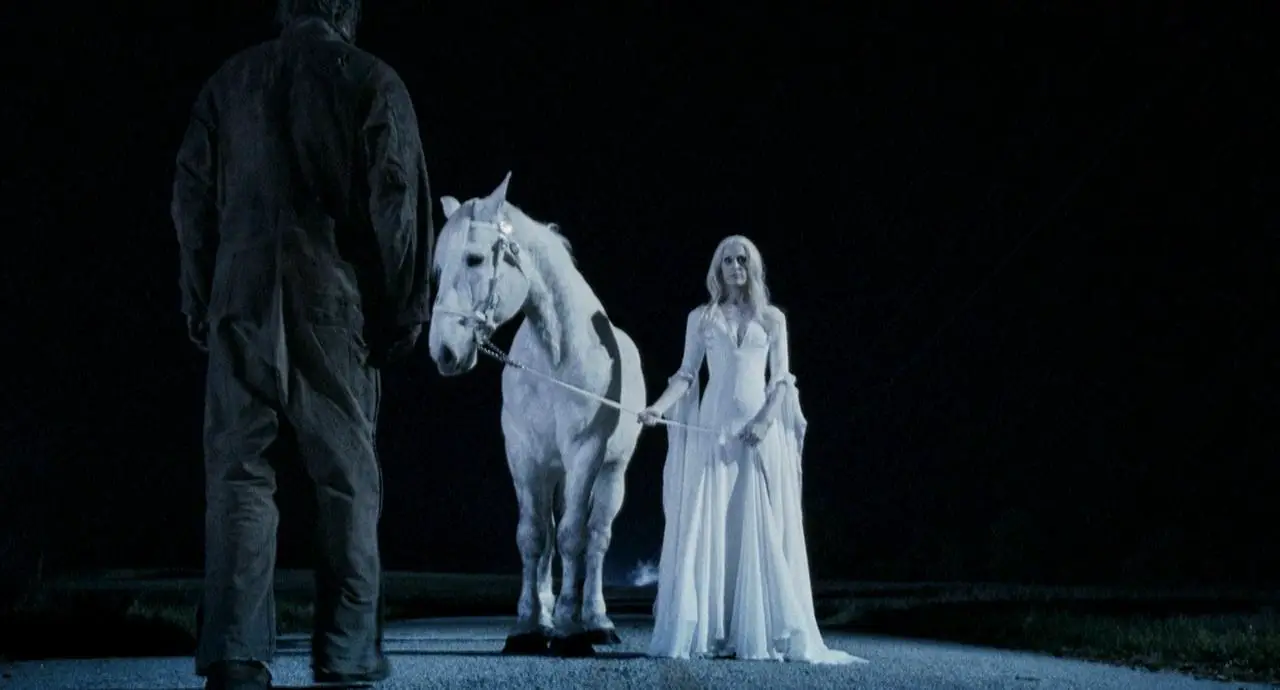
This choice would not have worked in the original run of Halloween films. Michael had been established as a silent killer and through seven features (not counting 1982’s Halloween III) his mystique is maintained. Zombie’s Halloween II is certainly welcoming criticism by again including his spouse; however, there is little to object to if one enjoyed her presence in the 2007 production. In fact, there are a series of darkly hypnotic images presented to the audience surrounding Deborah Myers. For example, there is a visual sense of dread when she and younger Michael are revealed in a closet. Annie walks by and the audience knows that Michael must be nearby.
The main theme of Zombie’s interpretation is analyzing mental illness. In both films, he illustrates the nurture versus nature debate without specifically answering the question. Malcolm McDowell’s Doctor Loomis states that “Michael is the product of a perfect storm of internal and external forces.” Still, the director is ultimately leaving it up to the audience to decide the cause of the character’s insanity. Furthermore, Zombie explores the idea of mental illness as a genetic condition. He employs Laurie Strode’s own descent into madness as a narrative tool to parallel Michael’s journey.
In 2009’s sequel, Laurie is no longer the optimistic girl-next-door. She is a young woman coping with a traumatic experience. Additionally, she is experiencing survivor’s guilt in moving on from her friendship with Annie. Now, the theatrical cut versus the unrated version reveals two very different sides of Laurie and Annie. In general, the theatrical release presents Laurie as a little dinged up but overall she is coping. The unrated version, however, shows a far more damaged Laurie Strode. Where the theatrical release is edited, the unrated cut shows extended exchanges between the two friends revealing malice, bitterness, and overall dysfunctional behavior.
Also See: Back to the ’80’s: Halloween 4 and 5
A main reason to defend Halloween II is Annie’s continuation. Harris portrays a haunted young woman putting on a strong front. Annie is a survivor that also endured Michael’s attacks. She finds solace as a pseudo wife and mother figure to Sherriff Brackett (Brad Dourif) and Laurie, respectively. Harris’s mature performance is rooted in believability, and her conclusion is certainly one of the most chilling sequences from the sequel. Annie’s final fight is given in fragmented pieces leaving much of what happened up to the audience’s horrified imagination. Furthermore, the unrated version adds a touching flashback of Annie at approximately the same age of Harris as Jamie Lloyd. Considering her overall treatment by the Halloween producers, at least Zombie gave Harris a proper curtain call.
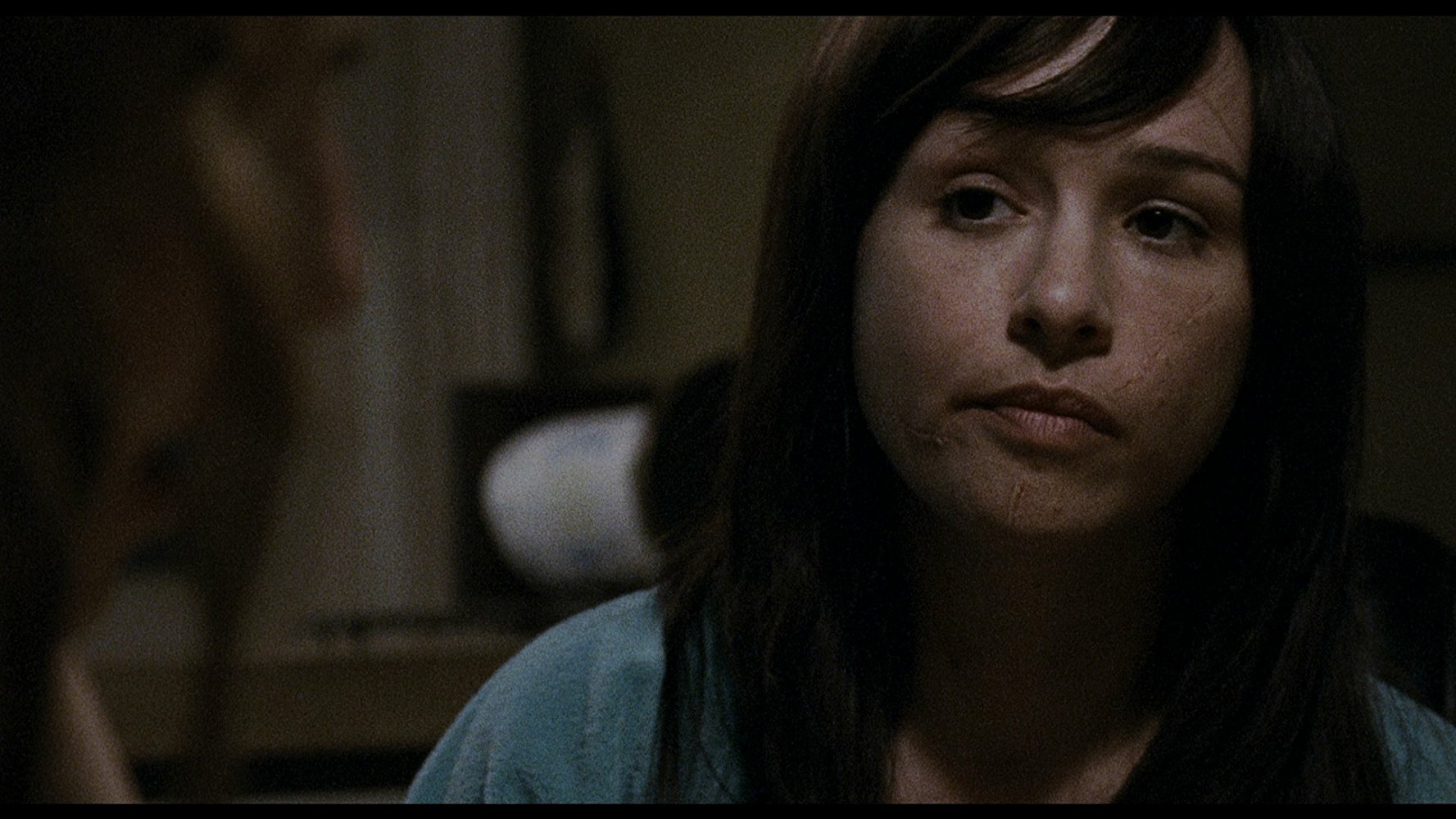
Overall, Annie helps to show different sides of Taylor-Compton’s final girl. Laurie’s own struggle with madness is the focal point. Taylor-Compton rises to the challenge of stepping into the iconic role originated by the Scream Queen Jamie Lee Curtis. Unlike Michael Myers, the character of Laurie commands a different kind of attention. In the 2007 remake, Taylor-Compton is mainly an echo of Curtis’s earlier performance; however, in the sequel she fearlessly takes Laurie into new territory. New facets of the character show Laurie’s struggle with anger, remorse, and even as, herself, a potential killer. She will not be remembered as the definitive Laurie Strode, but Taylor-Compton certainly gave it her all.
In addition to Danielle Harris and Scout Taylor-Compton, the central performances in Rob Zombie’s Halloween II are terrific. Brad Dourif is phenomenal in his turn as Haddonfield’s sheriff. Dourif’s seasoned presentation shows the actor at his best in the craft. He reveals a lovable father-figure willing to be silly while at the same time a commanding leader when running the sheriff’s station. Eventually, he delivers a powerful and overlooked portrayal of a man coming to terms with his ultimate loss. Malcom McDowell’s character is incredibly ill-conceived in this sequel; however, the actor still sinks his teeth into the role.
I will not dive too deeply into my criticisms of Halloween II (2009). They do exist. For example, the lack of Carpenter’s iconic theme for the majority of the film is puzzling. Additionally, a better film would have come in combining the theatrical release and the unrated version. The theatrical’s ending is the better of the two; however, the image of Laurie in Michael’s too-large mask does not work. The shoot-out in the unrated version is too reminiscent of Zombie’s The Devil’s Rejects (2005) and ultimately Laurie’s fate here makes the mental institution’s conclusion seem confusing.
Also See: Horror Remakes that Equaled or Surpassed the Original!
Still, Zombie attempted something different with 2009’s Halloween sequel. Different for the sake of being different is problematic. The director, however, achieves a new perspective for horror audiences regarding one of the genre’s most beloved slasher villains. His bizarre signature style is intact and is obviously not for everyone. Halloween II appeals to the Halloween fan that grew up wanting to know more about the sibling relationship between Michael and Laurie Strode.
This sequel answers the question: what if the sibling relationship had always been planned? The idea had been created specifically for 1981’s Halloween II and had some resolution with 1998’s Halloween H20. The first time I watched Halloween II (1981), I was stunned by the revelation. I am in agreement for the direction of the new “sequel trilogy.” As in, Michael and Laurie are no longer siblings. Nevertheless, I will always remember the chill I had watching the original sequel when Marion Chambers (Nancy Stephens) whispered to Doctor Loomis (Donald Pleasence) about “that Strode girl.” When Zombie’s remake came out in 2007, I waited with baited breath in the movie theater to see if the sibling relationship would be continued. I was not disappointed.
In doing so, Zombie’s remake and sequel are justified additions to the Halloween franchise. John Carpenter’s Halloween is a seminal masterpiece only enhanced by any flaws. Zombie’s re-imaginings are flawed; however, they twist the shaky ideas from the original and its 1981 sequel into an organic origin story. Whether you love or hate Zombie’s “cover versions” of Halloween, he maintains a cohesive story and vision. He entertains some thought-provoking questions and, if nothing else, pays tribute to certain actors and what he loved about Halloween. If you didn’t like Zombie’s recreations because they were different, give them a second try. I suspect you will find that Halloween II (in particular) is much better than you remember.
